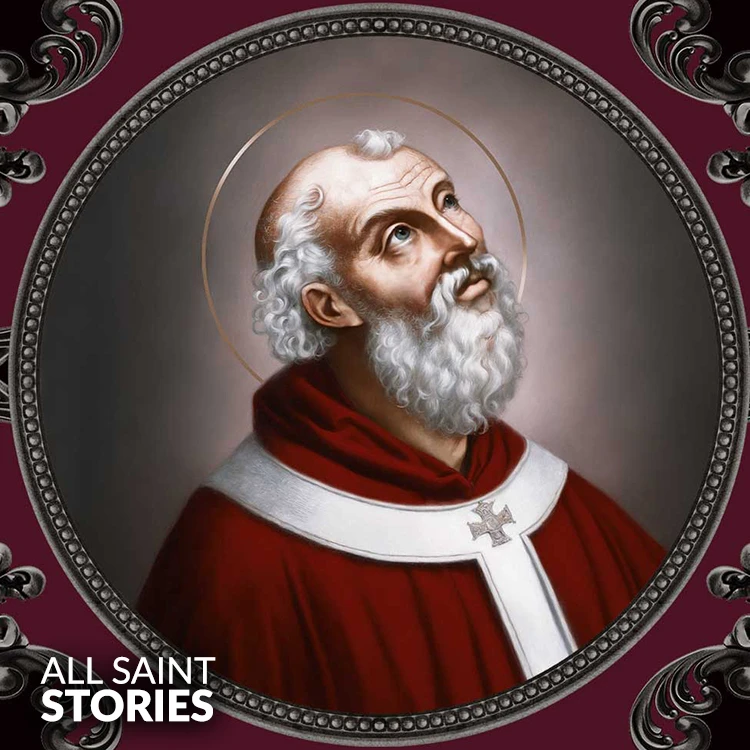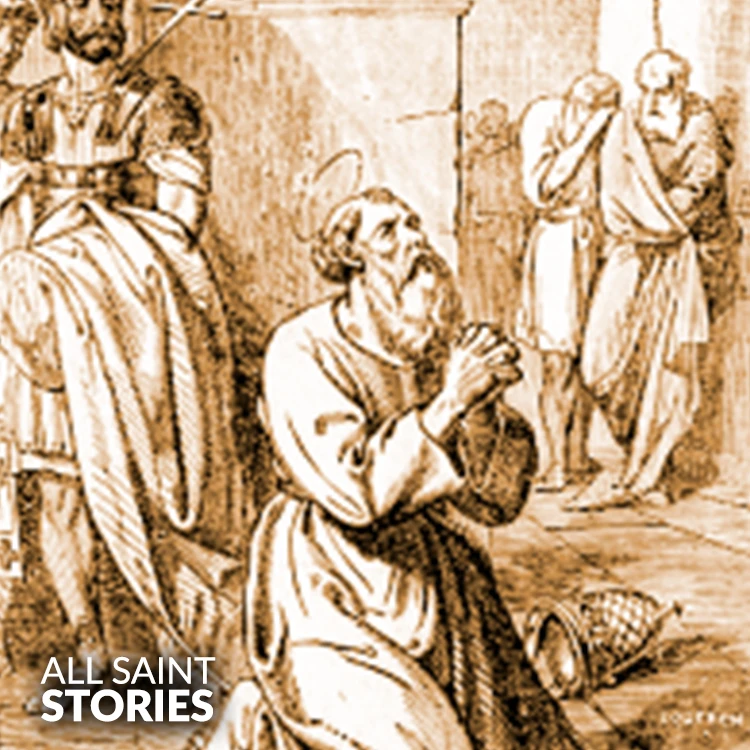"Saint Silverius, faithful servant of Christ, You endured trials with courage and strength, Intercede for us, that we may remain steadfast in our faith, And be granted the grace to follow the path of truth and righteousness. Pray for us, that we may find peace and holiness in God's love. Amen."
ST. SILVERIUS (POPE)
ST. SILVERIUS (POPE)

Saint Silverius was a Pope who served during a turbulent time in the 6th century. Known for his strong stand against Monophysite heresy, he was deposed and exiled by the Byzantine emperor's forces, led by Belisarius, and died in exile. His steadfastness in upholding the true nature of Christ earned him martyrdom, and he is honored as a saint in the Catholic Church.
Saint Silverius, born around the late 5th century, was the son of Pope Hormisdas. His papacy began in 536 AD, following the death of Pope Agapetus I. The time in which he served as pope was marked by both political and theological upheaval. During this period, the Byzantine Empire, under Emperor Justinian I, was engaged in a war with the Ostrogoths over control of Italy, and the Church was also embroiled in the Monophysite controversy, which revolved around the nature of Christ.
The Monophysites, a group that believed Christ had only one nature (divine), were in opposition to the Orthodox belief that Christ had two natures, one divine and one human. The Byzantine Empress Theodora, a supporter of the Monophysite belief, sought to have the pope support this heresy. However, Silverius, adhering to the Orthodox teachings of the Church, resisted these pressures.
The political influence of Theodora, coupled with the military presence of the Byzantine forces in Italy, led to Silverius' eventual deposition in 537. The general Belisarius, who was sent to Italy by Justinian to assert imperial control, accused Silverius of treason, though these accusations were likely politically motivated. Silverius was forced into exile on the island of Palmaria, where he suffered from harsh conditions and possibly starvation. He died in exile, likely in 537 or 538 AD.
Despite the brevity and hardship of his papacy, Saint Silverius is revered for his commitment to the Orthodox faith and his refusal to compromise on Church doctrine, even in the face of immense pressure. He is remembered as a martyr, and his feast day is celebrated on June 20th. Though the exact date of his canonization is unknown, his story serves as a powerful testament to the struggles faced by early Church leaders in defending the true teachings of Christianity.
Video Not Found
The information on this website is compiled from various trusted sources. While we aim for accuracy, some details may be incomplete or contain discrepancies.
If you notice any errors or have additional information about this saint, please use the form on the left to share your suggestions. Your input helps us improve and maintain reliable content for everyone.
All submissions are reviewed carefully, and your personal details will remain confidential. Thank you for contributing to the accuracy and value of this resource.
Credits & Acknowledgments
- Anudina Visudhar (Malayalam) – Life of Saints for Everyday
by Msgr. Thomas Moothedan, M.A., D.D. - Saint Companions for Each Day
by A. J. M. Mausolfe & J. K. Mausolfe - US Catholic (Faith in Real Life) – Informational articles
- Wikipedia – General reference content and images
- Anastpaul.com – Saint images and reflections
- Pravachaka Sabdam (Malayalam) – Saint-related content and insights
We sincerely thank these authors and platforms for their valuable contributions. If we have unintentionally missed any attribution, please notify us, and we will make the correction promptly.
If you have any suggestion about ST. SILVERIUS (POPE)
Your suggestion will help improve the information about this saint. Your details will not be disclosed anywhere.
© 2026 Copyright @ www.allsaintstories.com






 English
English
 Italian
Italian
 French
French
 Spanish
Spanish
 Malayalam
Malayalam
 Russian
Russian
 Korean
Korean
 Sinhala
Sinhala
 Japanese
Japanese
 Arabic
Arabic
 Portuguese
Portuguese
 Bantu
Bantu
 Greek
Greek
 German
German
 Dutch
Dutch
 Filipino
Filipino